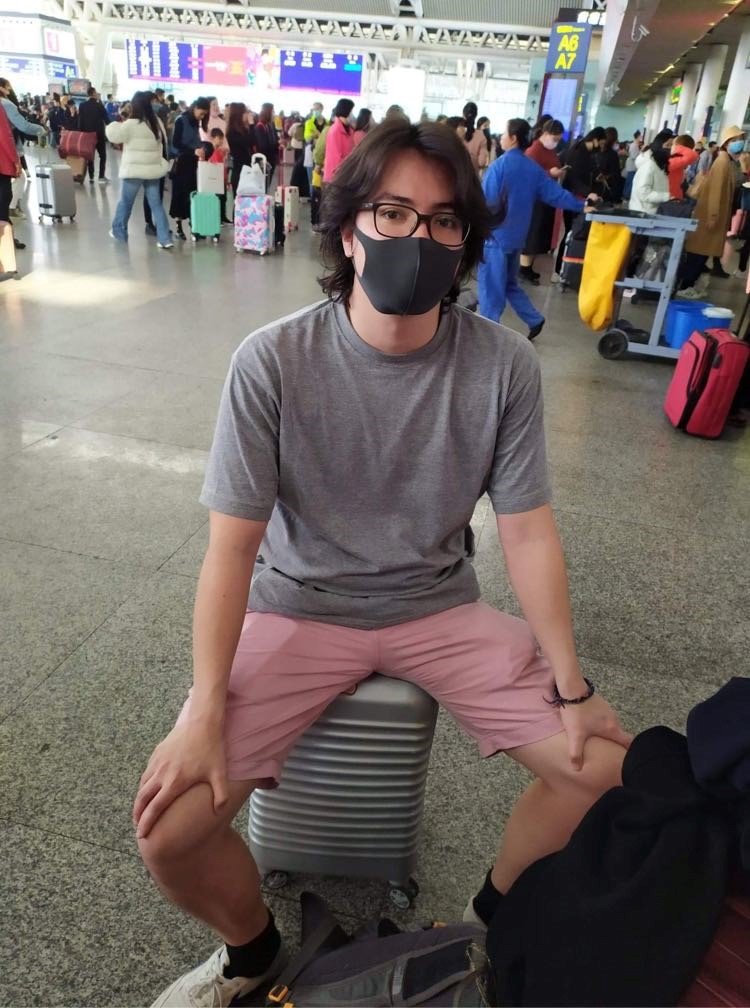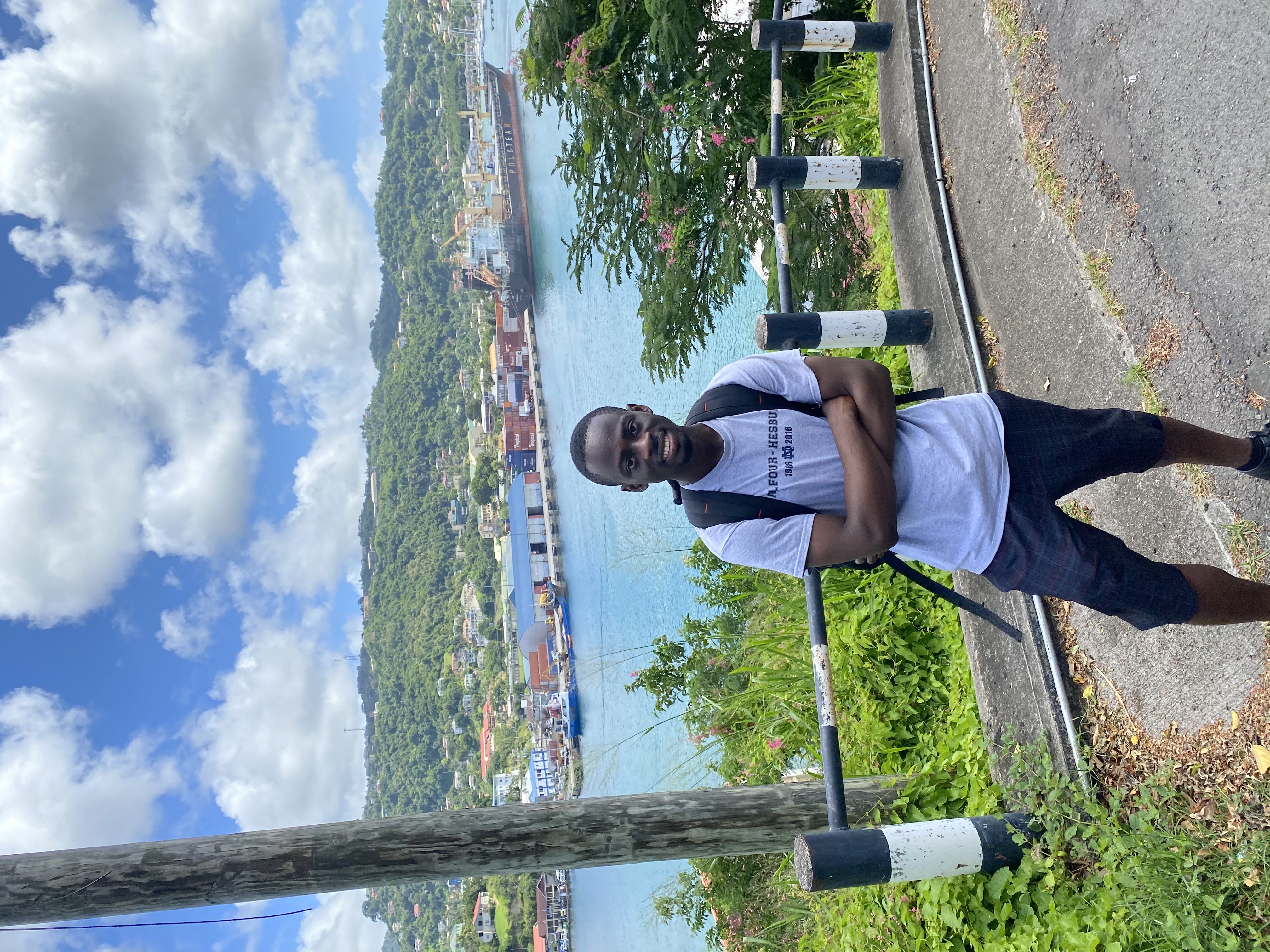|
Like many others, when the U.S. first began its shutdowns and restrictions last March, I thought things would return to normal rather quickly. I wrote my dissertation prospectus in my parents’ RV with the aid of a few library books my friend mailed me from my apartment in Evanston. In my prospectus, I speculated that I could do a short research trip to Japan in summer 2020, and perhaps another in the winter. If international travel was still difficult, I planned to visit some of my U.S.-based archives and research sites (mainly WWII-related museums and non-profits).
As time went on, things got pushed further and further down my calendar. Perhaps the most frustrating part was that I narrowly missed my window to travel to Japan. I received a Fulbright-Hays Doctoral Dissertation Research Abroad fellowship for 2020-2021. Because of the travel warnings set by the U.S. State Department, no travel could take place until January 2021 at the soonest. Japan reopened its borders (with daily immigration caps) in October 2020 – then in December 2020, in the wake of rising cases and concerning news about virus variants, the borders completely closed again. I am currently navigating the multiple bureaucracies of Northwestern, the U.S. State Department, the Japanese Immigration Services Agency, and my host Japanese university to prepare my visa application so that I can travel as soon as the border does reopen.
Despite these setbacks, I have been able to conduct a great deal of research through digitized sources. My project examines the material culture of the Pacific Theater of World War II, particularly battlefield souvenirs, as a lens to analyze war memory in Japan and the United States. I have utilized digitized newspaper repositories, particularly the online databases for the Japanese newspapers Asahi Shinbun and Yomiuri Shinbun. I have also used some of the larger ProQuest-type databases of American newspapers to look at examples of American veterans who have tried to return their war souvenirs to Japan. In addition, I have continued my review of secondary literature, particularly on the nuances of American memory of WWII. As a result, I plan to incorporate more analysis of American cultural representations of WWII, and veterans’ memoirs in particular, into my final analysis.
Perhaps most interestingly, Covid-19 has become a part of the narrative itself. the Obon Society, a non-profit organization dedicated to returning WWII souvenirs to Japan, reports that there has been an uptick in the donation of souvenirs found during deep cleanings of attics, garages, and even small local museums during the pandemic. In addition, the Obon Society has increased their social media presence, posting news stories and videos about souvenir returns they helped to facilitate on Facebook. This non-traditional archive too will become a part of my dissertation. Finally, I try to remind myself of what Professor Amy Stanley told me during my prospectus defense: that dissertations can fail for many reasons, but almost never simply because of a lack of sources. There are always ways to reinvent and to make the gap a part of the story.
|
|
My plan for the academic year 2019-2020 was to travel around China, Taiwan, Hong Kong, and the United States, conducting research from a dozen archives in half a dozen cities. Initially, my project was conceptualized as a social history of mixed-race communities in three regions: Shanghai, Harbin, and Ergun City (Inner Mongolia). By November 2019, I had lined up a series of interviews with local journalists, ex-officials, churchmen, tour guides, ethnographers, and (for a lack of a better term) rural peasants, in each of these regions. Not only had I spent several months meticulously planning out my grand voyage and interviews with two dozen people, I had also spent about three grand in total on flights, trains, hotels, and provincial buses. I was ready to roll.
Things got a bit dicey in mid-December when a colleague told me that the Shanghai hospital I had just visited for a mild chest infection was cordoned off because an old couple had just been diagnosed with pneumonic plague. The couple had travelled all the way from Inner Mongolia, where I was due to go in March. Apparently, plague is pretty easy to treat these days, a doctor friend said. Friends joked that only an apocalypse could possibly stop my research.
By late December, rumors were already flying. I decided to stay in Shanghai over January instead of going to Beijing. By January 20, the virus was in Shanghai, and on the 23rd, Wuhan went full lockdown. I decided to go to Hong Kong to spend Chinese New Year with my family for the first time in years. At this point, I had done only three months of pure archival research. I hadn’t yet realized that my entire project needed to change.
In Hong Kong, I booked a trip to Taiwan, but mere days after Chinese New Year I fell ill yet again. Was my chest infection COVID-19? I guess I’ll never know. I was ill for ten days, quarantined in my childhood room for precaution. It was the first time I’d spent that long in my room for over two decades. The moment I felt better I hopped on the next available plane to Taipei. I had booked a sharehouse with the intention of spending my remaining months in Taiwan doing research at the Academia Sinica. It was now late February. I had spent the past two months doing nothing as everything was closed virtually overnight without notice. Nobody knew when the archives would open again. My visiting student status at the East China Normal University was terminated. I was anxious.
Long story short, I was turned away at the border. Somehow the government had decided overnight that they weren’t taking any chances because I had been in mainland China less than thirty days before. Back home, stuck in my room once again, I spent the next two weeks desperately reconceptualizing my project. I had no idea what I was going to do, but I needed to do something. So I conjured a haphazard research plan and flew back to America. I squeezed a week at the Social Welfare Archives in Minnesota before they closed, and by March 15, Covid was officially in America.
Over the summer and autumn, I wrote up what I had. It wasn’t too much, but it was enough to reorient my entire dissertation away from the social history of my dreams to a mostly intellectual history with social components. All in all, I had to write an entirely new dissertation.
|
|
In a recent podcast interview entitled “Graduate/Doctoral Research Amidst a Global Pandemic,” I talk about the challenges of conducting both archival research and oral interviews in the COVID-19 pandemic. I speak about the ways in which the global pandemic has profoundly affected my research. While I was able to conduct two months of research in Grenada, the closure of borders and archival sites have prevented me from further travels. For example, Suriname has closed its borders since March of 2020, and the archives at the African Institute for Economic Planning and Development in Senegal, and my other archival sites in the United States and elsewhere, are closed down. Moreover, some of the people I was scheduled to interview have died. It is important to understand how scholarly works shape and are shaped by historical events, thus influencing the kinds of sources available to the historian. Despite these challenges, I have been able to conduct interviews via Zoom, WhatsApp, etc. Additionally, the librarians and staff at Northwestern University, especially those at the Africana Library, including Esmeralda, Crystal, Gene, and Florence, have generously scanned archival documents for me. Overall, the pandemic will have a massive impact on the ways in which scholars will conduct future research. Below is the link to the podcast:
Gyamfi, Bright, et al. “Graduate/Doctoral Research Amidst a Global Pandemic.” The Africanist. Podcast audio, January 16, 2021. https://open.spotify.com/episode/2OcGIL1AgPLEHpikzsOIwC?si=oPMXOIDsTX6hBUggF6_AQ&utm_source=Facebook_SimpleMusicStories&utm_medium=sms&fbclid=IwAR13h0bZO86OR6Vi8JDXpMEuJVw3aTpv74V4DYVqqJgeknUUoZ3hI7dOT4A&nd=1.
|
|
As a consequence of lockdowns and travel restrictions, the current sanitary situation has significantly impacted my research and delayed my projects. As part of the History PhD coursework requirements, I was recently supposed to write a research paper based on French primary sources. I traveled to France during the summer of 2020. Despite having French citizenship, managing to get there was strenuous. My initial plan was to visit archives at the end of Fall quarter before returning to the US. This research trip would also have allowed me to start working on my thesis prospectus. However, all archives closed during the national lockdown that began around that time. When the lockdown ended, centers partially reopened for limited numbers of researchers with appointments, and some institutions organized to scan documents. Unfortunately, this delay in the reopening of institutions, as well as my research focus on specific sources that amount to thousands of pages, meant that both time and means were lacking.
I now hope I can at least travel to archives in the US during the summer of 2021, but some of the primary sources I need remain abroad and out of reach; my research is ultimately being postponed until borders and institutions re-open.
|



